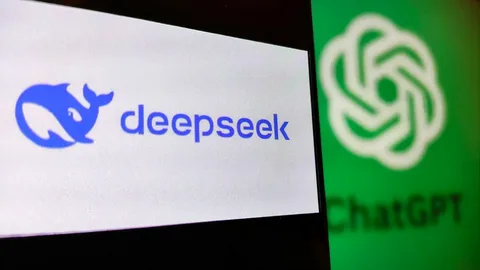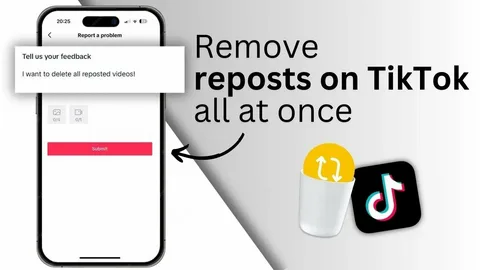DeepSeek | The AI Upstart Redefining the Global Tech Power Struggle
Artificial intelligence (AI) has been a battleground for global innovation over the past decade, dominated largely by Silicon Valley titans such as OpenAI, Google, and Meta. These US-based giants have invested billions of dollars in deep learning research, supercomputing infrastructure, and the relentless pursuit of more powerful AI models. Yet the latest entrant in the AI race, China’s DeepSeek, has blindsided nearly everyone in the tech community—from corporate CEOs to government officials.
Suddenly, the world is awash with claims that DeepSeek:
- Matches or even surpasses top-tier American AI models like ChatGPT.
- Achieved this on a fraction of the budget, supposedly using outdated or less-powerful hardware.
- Has soared to the top of smartphone download charts worldwide within weeks of its release.
Such feats, if true, threaten to upend the conventional wisdom that you need massive financial firepower and state-of-the-art computing resources to create cutting-edge AI. At the same time, the company’s ties to China have raised serious questions about data privacy, intellectual property theft, and global security implications.
This comprehensive blog post will:
- Unpack DeepSeek’s rapid rise to prominence
- Examine how it could reshape data center investments
- Discuss privacy and security concerns
- Include direct quotes from key stakeholders—politicians, academics, and industry experts—who have weighed in on DeepSeek’s turbulent debut.
By the end, you’ll have a multi-dimensional look at whether DeepSeek is a technological marvel, a political weapon, or a bit of both.
The Meteoric Rise of DeepSeek
1. Suddenly in the Spotlight
Not long ago, DeepSeek was an obscure AI start-up operating under the umbrella of a Chinese hedge fund called High-Flyer, run by Liang Wenfeng. Then, in a matter of weeks, DeepSeek’s chatbot jumped to the top of global smartphone app charts—overtaking well-known names like ChatGPT. According to industry insiders, it matches or surpasses the capabilities of US-based models on tasks like coding, creative writing, and mathematical reasoning.
Jerome Pesenti, a former head of AI research at Meta, declared that DeepSeek is “almost on a par” with OpenAI’s most advanced public-facing models—an assertion that set off alarm bells across Silicon Valley. Soon after, Western markets went into a tailspin as tech stocks dropped, forcing many to rethink their assumptions about AI’s entry barriers.
2. Low-Cost Model | Myth or Masterstroke?
DeepSeek claims it trained its main model at a cost of just $6 million—pocket change compared to the hundreds of millions or even billions spent by firms like OpenAI and Google. Some in the tech community see this as an innovation breakthrough that drastically lowers the bar for building powerful AI systems.
Yet others are skeptical, attributing DeepSeek’s “cost savings” to questionable methods or undisclosed state support. Stacy Rasgon, a star tech analyst at Bernstein, said plainly:
“Did DeepSeek really build an OpenAI for $5 million? Of course not.”
Her statement reflects a broader sentiment that no single Chinese start-up could train a model at such scale without either:
- Access to sophisticated chips through parallel supply chains or black-market procurement.
- Significant backing from the Chinese government.
- Techniques like “distillation,” in which a new model “sucks knowledge” from an existing one.
3. Allegations of “Distillation” and IP Theft
The most heated criticism comes from OpenAI and US officials who have accused Chinese AI labs, including DeepSeek, of “sucking knowledge” from Western models. This technique, known as distillation, allows developers to glean insights from trained models without having to replicate years of expensive research.
David Sacks, the US president’s AI and cryptocurrency adviser, suggests there is “substantial evidence” DeepSeek copied some of OpenAI’s proprietary technology:
“We know that groups in the PRC are actively working to use methods, including what’s known as distillation, to try to replicate advanced US AI models.”
OpenAI itself stated:
“We are aware of and reviewing indications that DeepSeek may have inappropriately distilled our models, and will share information as we know more.”
This has led to tensions that could prompt stricter regulations and even lawsuits. Donald Trump’s AI tsar fueled the controversy by claiming that DeepSeek’s approach represents intellectual property theft—stating it is highly unlikely that any company could ramp up AI capabilities this fast and this cheaply without “copying” from Western systems.
4. Marc Andreessen’s “Sputnik Moment” Comparison
Tech luminaries in the US are also sounding the alarm that DeepSeek’s success may be a “Sputnik moment”, referencing the shock the US felt when the Soviet Union launched the Sputnik satellite in 1957. Venture capitalist Marc Andreessen said:
“One of the most amazing and impressive breakthroughs I’ve ever seen.”
He warns this move underscores how quickly the AI arms race can shift—especially with geopolitics in the mix.
Data Centers in Flux—Is “Bigger is Better” Obsolete?
5. The Global Data Center Boom
Major tech players have poured billions into data centers, expecting that power-hungry AI systems would require ever-increasing racks of advanced GPUs and specialized hardware. Countries like the US, UK, and Ireland have fast-tracked data center construction, introducing “AI Growth Zones” and subsidizing energy for these projects.
Edward Galvin, chief executive of DC Byte, emphasizes the scale of the proposed expansions in Britain alone:
“It’s those companies that are developing data center capacity or power generation capacity just for AI that will definitely be suffering now.”
He estimates that around 1,700MW (about 41% of new capacity) is at risk due to the market’s uncertainty around DeepSeek’s more efficient method. A climate of “wait and see” has descended upon these multi-billion-dollar projects.

6. The “DeepSeek Effect” on Chipmakers & Investors
Soon after news broke about DeepSeek’s successful launch, Nvidia—the premier supplier of AI-focused GPUs—experienced a dramatic drop in its market value. Over $600bn was wiped off Nvidia’s valuation in one day, and other tech companies dependent on data center growth, such as ASML and energy providers, saw their stock prices fall.
Jordan Rochester from Mizuho pointed out the existential threat:
“It fundamentally breaks the AI narrative, if true.”
The key question is whether DeepSeek has really sidestepped the need for advanced hardware or if it is quietly benefiting from stockpiled high-end chips, possibly acquired before stricter export controls came into force. If DeepSeek’s approach becomes standard practice, the multi-billion-dollar expansions for data center capacity could be grossly overestimated.
7. Corporate Reactions |“War Rooms” and Emergency Meetings
Big tech companies are scrambling to assess the DeepSeek shockwave. Reports suggest:
- Meta has set up a “war room” to evaluate the potential threat.
- Microsoft is adjusting its AI strategies after failing to meet some revenue expectations, partly influenced by shaken investor confidence.
- Amazon and Google are rumored to be recalibrating their cloud and AI roadmaps, uncertain if they can maintain the “we need bigger data centers” rationale in the face of DeepSeek’s claims.
However, Cameron Bell of estate agent Savills in the UK notes that not all deals have collapsed:
“In truth, it’s too early to say [whether DeepSeek will have an effect]. But by all accounts, we’ve been told to continue the work that we’re doing. We haven’t had any deals fall out of bed yet as a result of this.”
Global Security & Data Privacy—Key Voices Speak Out
8. DeepSeek’s National Security Implications
The White House and other Western governments have wasted no time assessing DeepSeek’s potential to disrupt the geopolitical balance. Given that China has already been under scrutiny for issues related to Huawei and TikTok, the emergence of an AI service that might store global user data within China’s borders has heightened anxiety.
Bill Bishop, an influential China-watcher from Sinocism, poses a critical question about US export controls:
“Have they failed, as industry argues, or have they not been stringent enough, as I hear people with a national security background arguing?”
Trump’s administration has signaled it will consider more stringent measures to ensure US technological secrets remain protected and that Chinese companies cannot siphon advanced knowledge.
9. Privacy Risks | Bill Conner’s Advisory
DeepSeek’s privacy policy explicitly states that user data—texts, prompts, audio, chat history—may be shared with public authorities in China at the company’s discretion. This is reminiscent of concerns that led to partial or total bans on apps like TikTok.
Bill Conner, CEO of automation firm Jitterbit and a former security consultant to the UK and US governments, warns:
“DeepSeek represents a clear risk to any enterprise whose leadership values data privacy, security, and transparency … [it is] a shared cloud service run in China with data being stored in China—potentially introducing unknown risks.”
He advises that proactive, privacy-minded enterprises should perform strict due diligence with all large language models (LLMs), not just DeepSeek.
10. Reactions from Industry Analysts & Professors
Privacy watchdogs across Ireland and Italy have begun requesting information on how DeepSeek processes citizens’ data. The US Navy has already advised staff not to use the DeepSeek app due to “potential security and ethical concerns associated with the model’s origin and usage.”
Forrester analysts wrote in a joint blog post that the massive downloads of DeepSeek mean thousands—and possibly millions—of users are uploading potentially sensitive information into the app:
“According to its privacy policy, DeepSeek explicitly says it can collect ‘your text or audio input, prompt, uploaded files, feedback, chat history, or other content’ and use it for training purposes. It also states it can share this information with law enforcement agencies and public authorities at its discretion.”
Professor Allen Tucker from Brunel University suggests that AI chatbots, including DeepSeek, should be used with caution because many are “toys” designed to dazzle without a clear use-case in mind. Meanwhile, Professor Michael Woolridge of the University of Oxford warns that the model’s performance underscores how closely China is keeping pace with the US.
11. Comparisons to TikTok and Huawei
Just as TikTok became a flashpoint in the US-China tech standoff, DeepSeek is emerging as another potential battleground. If the app gains a massive user base in Western countries, concerns may mount about Beijing being able to directly access foreign data.
Some observers argue this is no different from the controversies around American big tech collecting data. However, the major difference is the Chinese legal context, wherein private companies can be compelled to cooperate with national authorities—prompting legitimate questions about user security and privacy.
Possible Futures—Will DeepSeek Reshape or Fizzle Out?
12. Replicating DeepSeek’s Success—or Unmasking the Illusion?
A central question remains: Can DeepSeek’s claims be replicated by others? If a moderately funded Chinese startup truly matched ChatGPT, it could spark a flood of new AI contenders worldwide. Smaller companies, startups, and research labs might replicate the technique, “democratizing AI” and unleashing unprecedented innovation.
Alexandr Wang, head of Scale AI in San Francisco, echoes the rumor that DeepSeek may have used tens of thousands of the best Nvidia H100 GPUs, either stockpiled or obtained via undisclosed means:
“They can’t talk about it, obviously, because it is against the export controls that the US has put in place.”
If that’s the case, the narrative of “low-cost AI” might be more marketing spin than genuine technical achievement.
13. Impact on Tech “Bubble” and Broader Economy
Should DeepSeek be the real deal, it disrupts the long-held dogma that you need huge sums of capital for AI breakthroughs:
- Declining Returns on R&D: Tech giants that overinvested in data centers and advanced hardware might see their margins shrink.
- Potential Commodity Pricing: If multiple players replicate DeepSeek’s method, AI-based services could become commoditized, driving down profits.
- Fresh Regulatory Hurdles: Policymakers might introduce new licensing requirements or cross-border data regulations in response to fears of espionage or mass data harvesting.
Meanwhile, Meta and other social media companies appear to be in “panic mode.” Mark Zuckerberg told investors he expects as many as 1 billion people to use Meta’s AI products this year, but the overshadowing presence of DeepSeek has forced them to reassess how quickly they can move and at what cost.
14. Business Advice | Diversify, Be Cautious
Investment advisors remain divided on how to respond to DeepSeek’s arrival. James Baxter-Derrington, a commentator covering tech stocks, suggests that:
“This could be revolutionary, hampering the fundraising ability of firms like OpenAI and destroying Nvidia’s entire model of ‘you need our best chips to succeed.’ … [But] this could also be nothing at all, an interesting diversion that has sunk share prices in the near term.”
He concludes that the most prudent approach is “diversification,” since it’s far from clear how the competitive and regulatory landscape will shake out.
The Road Ahead—Key Takeaways and Conclusions
15. A New Chapter in the AI Arms Race
By now, it’s evident that DeepSeek is more than just another chatbot. Its emergence has:
- Rattled Western Tech Giants: Prompting reevaluations of multi-billion-dollar data center projects and advanced GPU purchases.
- Raised Potential Intellectual Property Questions: With accusations of distillation and knowledge theft swirling.
- Set off Privacy Alarms: Triggering warnings from security experts, government officials, and regulators.
For the Chinese Communist Party, DeepSeek’s success story is a propaganda coup, showcasing China’s ability to compete with or leapfrog the West. As one observer wrote, “We’re done following. It’s time to lead,” echoing the theme of Chinese self-reliance in tech.
16. Balancing Innovation, Security, and Collaboration
Both the US and China have vested national interests in dominating AI, complicating any possibility of open collaboration. Still, some analysts believe that shared governance frameworks—mirroring global agreements on nuclear non-proliferation—could help manage the risks of advanced AI.
Yet this is easier said than done, especially when two world powers are locked in escalating trade wars and jostling for digital hegemony. If DeepSeek continues on its current trajectory, the West might respond with harsher technology embargoes or stricter monitoring of Chinese AI firms—a move that risks further fracturing the global AI ecosystem.
17. Practical Advice for AI Users and Enterprises
For ordinary users:
- Avoid entering highly sensitive information into any chatbot, DeepSeek or otherwise.
- Research data practices for each service you use.
For businesses:
- Vet AI providers carefully, especially if data must remain compliant with GDPR or similar regulations.
- Implement guidelines on what employees can and cannot share via any chatbot tool.
- Monitor regulatory updates: Countries including the US, UK, Italy, and Ireland are already revisiting their frameworks for AI governance in light of DeepSeek’s arrival.
18. Could DeepSeek’s Claims Be Exaggerated?
Skeptics point out that while the app is undeniably advanced, its cost and computing-power claims still don’t fully add up. Bill Conner suggests that if the lab indeed used low-grade hardware, they might be tapping into new algorithmic methods that have yet to be peer-reviewed. Alternatively, they might be obfuscating the real cost structure.
Nathan Benaich, founder of Air Street Capital, says European AI companies are likely the “real losers” here. They lack the scale of US firms and the single-minded state support of China, leaving them squeezed in the middle:
“These companies have already been struggling to differentiate themselves on price or performance, so DeepSeek R1 presents a perfect storm for them.”
19. Final Verdict | Disruption on a Global Scale
Whether DeepSeek is a genuine “bigger than ChatGPT” success story or a meticulously orchestrated Chinese tech triumph, it has:
- Sparked fierce debate about the nature of intellectual property in AI.
- Disrupted data center investment plans in multiple countries.
- Reignited concerns over data privacy and national security on a massive scale.
Some might see parallels with previous Chinese tech evolutions—like Huawei outpacing Western competitors in 5G infrastructure and TikTok gaining global popularity. Now, with AI increasingly central to everything from healthcare to defense, DeepSeek’s dramatic entrance has a profound geopolitical impact.
Those who remain optimistic believe DeepSeek could push US and European firms to be more innovative, efficient, and mindful of privacy—leading to a better experience for end users. Those who remain pessimistic foresee an AI arms race with stricter protectionism, battered tech stocks, and a deeper trust deficit.
Welcome to the Next Phase of AI Competition
The saga of DeepSeek underscores how volatile and unpredictable the AI landscape can be. We’ve witnessed the melding of:
- Political ambition (Donald Trump’s $500bn Stargate project overshadowed by China’s sudden win)
- Economic strategy (questions on whether massive data center expansions are overblown)
- Regulatory tension (fears over privacy, IP theft, and national security)
Ultimately, whether DeepSeek proves to be a fleeting phenomenon or the first glimpse of a reconfigured AI future, the ripple effects are already profound. As AI continues its rapid acceleration, the lines between corporate innovation, government interests, and personal freedoms grow ever more blurred. DeepSeek may be just the start of more earth-shaking developments to come.




Post Comment